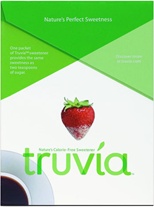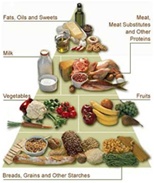
Supplements for Diabetes
Supplements for Diabetes
“Complementary and alternative medicine (CAM) is a group of diverse medical and health care systems, practices, and products that are not generally considered part of conventional medicine”, National Institute of Health. People with diabetes take supplements to manage their diabetes and diabetes complications. We have listed articles that discuss supplements and their believed benefits and harm. We suggest you speak with your health care professionals about whether you should take dietary supplements.
Omega-3 Fatty Acids for Diabetes Care
Omega-3 fatty acids are a group of polyunsaturated fatty acids that are essential to Diabetic health. Omega-3 fatty acids and Omega-6 fatty acids are of interest for diabetes mellitus because having Type 2 Diabetes increases the risk of a person getting heart disease and stroke. Read more…
Magnesium for Managing Type 2 Diabetes
Magnesium is considered as one of the minerals that is vital for the body. Foods that are high in magnesium include nuts, green leafy vegetables, and a number of whole-grain products. Magnesium supplements that are present in the market today are available in many forms, such as tablets, liquids, or capsules. Read more…
Garlic for Managing Type 2 Diabetes
Garlic (Allium sativum) is a known herb, which is used to enhance the flavor of foods. In today’s time, Garlic is also processed and made as dietary supplements to correct certain conditions; and in some countries, garlic is used for therapeutic purposes. Various studies had revealed that the substance called Òallicin,Ó which is found in garlic brings a lot of beneficial effect to the body if taken regularly. This is the exact substance that gives garlic it’s distinct aroma and taste. Many users had also claimed that garlic had helped them in countering and preventing certain diseases. Read more…
Managing Type 2 Diabetes with CoQ10 Supplement
Coenzyme Q10, also known as CoQ10 (usually written as CoQ10; some other names include ubiquinone and ubiquinol) is a vitamin-like substance. CoQ10 enables the cells to generate energy to be utilized every day, and also acts as an antioxidant to protect the cells from certain diseases. Lean meats and seafood provide small amounts of CoQ10. Health supplements that contains Coq10 are available in tablets and capsules. Read more…
Managing Type 2 Diabetes with Chromium Supplement
Chromium is a form of metal, which is considered as an important trace
mineral for humans. Chromium is commonly seen in certain foods, like
meats, animal fats, fish, brown-sugar, coffee, green tea, some spices or
herbs, whole-wheat, rye breads, and brewer’s yeast. Today, It is
marketed as a nutritional supplement in a form of capsule and tablet. Read more…
Managing Type 2 Diabetes with Alpha-Lipoic Acid
Alpha-lipoic acid (ALA, generally known as lipoic acid or thioctic acid) is actually a chemical which is comparable to vitamins. It is an antioxidant- an element that inhibits cell injury, which is brought on by the substances called “free-radicals” in a procedure which is known as oxidative stress High levels of blood sugar can be associated with oxidative stress ALA is found in various types of foods; this includes: liver, spinach, broccoli, and potatoes. This chemical can also be made “artificially” inside the laboratory. Dietary supplements that contain ALA are available in tablets or capsule form. Read more…
Foods as Dietary Supplements for Diabetes
Both Experts and Type 2 diabetics are convinced that certain foods are indeed effective in managing diabetes. However, they simply don’t know which kind of food possess the most beneficial effect. Various studies and research were conducted, but the results taken from these studies are not convincing enough to conclude their effectiveness. Majority of the research taken are randomized, double-blinded, and placebo controlled. Read more…













Recent Comments